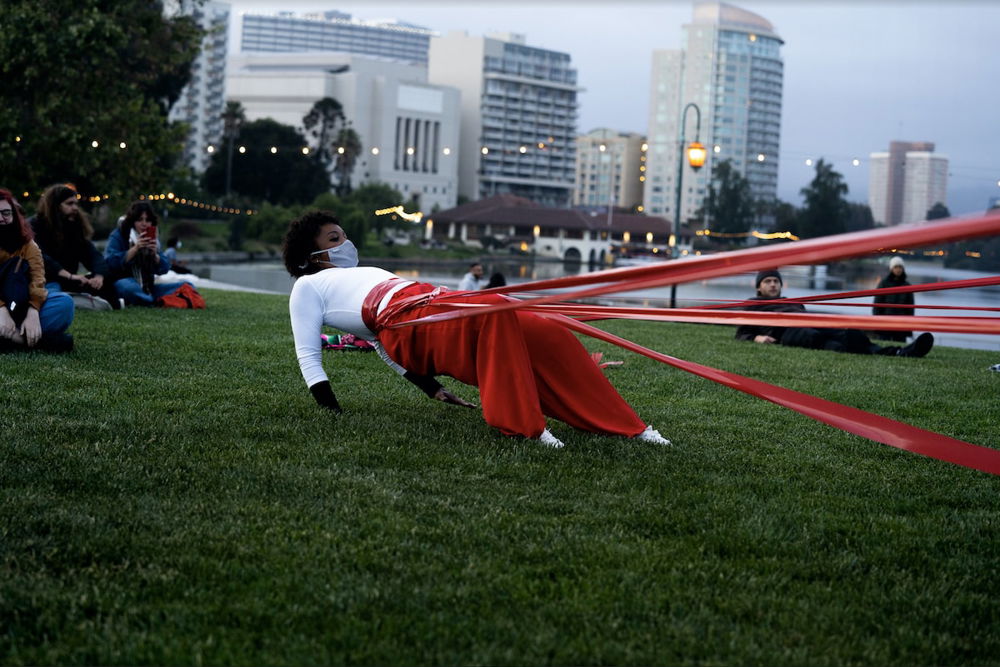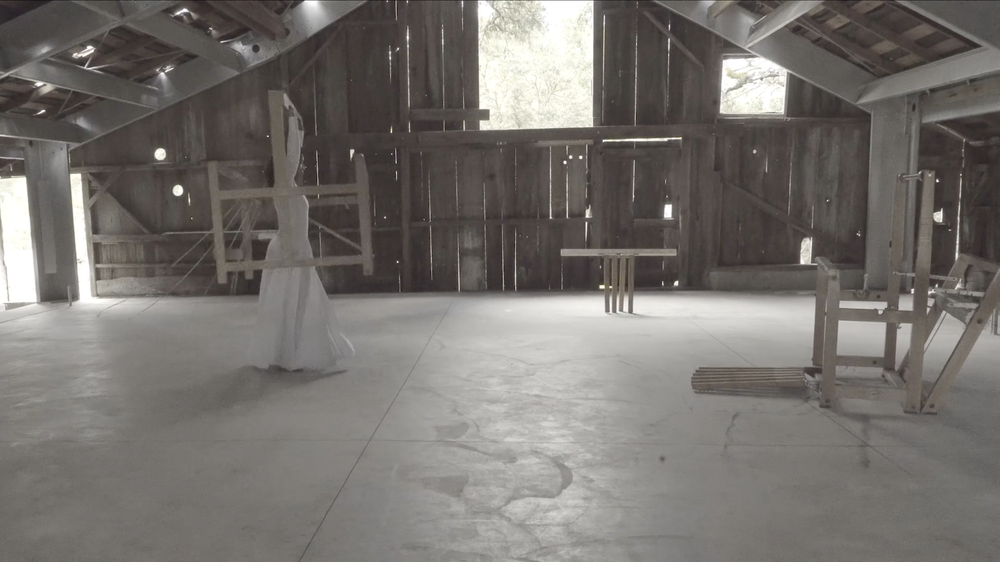
Photo courtesy of the artist.
Indira Allegra is deeply informed by Quiet, interiority, animism and the ritual, relational and performative aspects of weaving. As a conceptual artist and recognized leader in the field of performative craft, they take weaving off the loom and use it as a framework to explore interlocking tensions which haunt non-human and human relationships. Allegra’s performances and installations explore the poetics of sites and objects, revealing what they might be memorials to. It is their combination of past experiences as a sign language interpreter, domestic violence counselor, sex worker, and union organizer which affords them the courage and sensitivity to work with grief, longing and desire for communication directly.
Recognition for their work includes a Burke Prize, Gerbode Choreography Award, Art Matters Artist2Artist Fellowship, Mike Kelley Artist Project Grant, and Joseph Henry Jackson literary award, among many others.Their work has been featured at the Museum of Arts and Design, the Arts Incubator in Chicago, the John Michael Kohler Arts Center, the Yerba Buena Center for the Arts, the Center for craft, and the Museum of the African Diaspora. Their commissions include performances for SFMOMA, the de Young Museum, the Wattis Institute, and the SFJAZZ Poetry Festival.
Allegra’s writing has been featured in the journal TEXTILE: Cloth and Culture and American Craft Magazine; they also have forthcoming contributions to the ART/WORK book series (Princeton University Press) and Manual: a journal about art and its making (RISD Museum).
Donor -This award was generously supported by the USA Board of Trustees.
This artist page was last updated on: 08.26.2024

Corresponding Sites by Indira Allegra, 2021. 30 minutes. Commissioned by The Wattis Institute.
Photo by Chani Bockwinkel.

BODYWARP: Casting by Indira Allegra, 2017. 00:50 on loop. Performed at the Djerassi Resident Artists Program.
Video courtesy of Lindsay Tunkl.